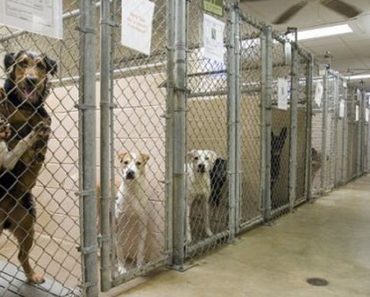As a dog owner, it can be distressing to see your furry friend experiencing constipation. Fortunately, there are various treatment options and remedies that can provide quick relief for constipated dogs. In this article, I will discuss natural remedies, effective treatments, and preventive measures to help relieve constipation in dogs.
Constipation in dogs is a common issue, especially among older dogs. It’s important to be aware of the signs and causes of constipation, as well as when it’s necessary to seek veterinary help. By understanding the underlying factors and utilizing appropriate treatment methods, you can ensure your dog’s comfort and promote healthier bowel movements.
Key Takeaways:
- Constipation in dogs can be treated through natural remedies and effective treatment options.
- Recognizing the signs of constipation is crucial for early intervention.
- Common causes of constipation in dogs include lack of exercise, poor diet, and certain medications.
- Home remedies such as increasing hydration, adding fiber to the diet, and providing natural stool softeners can provide relief.
- Consulting with a veterinarian is essential to develop the best treatment plan and ensure your dog’s well-being.
How To Recognize Signs of Constipation in Dogs
Knowing the signs of constipation in dogs is crucial for early detection and treatment. By recognizing these signs, you can take prompt action and provide the necessary care to alleviate your dog’s discomfort.
1. Infrequent bowel movements: Keep an eye out for a sudden decrease in the frequency of your dog’s bowel movements. If you notice that your dog isn’t defecating as often as usual, it might indicate constipation.
2. Straining or difficulty in defecating: Observe your dog during their bathroom breaks. If they are visibly straining, squatting for a prolonged period, or seem to be having difficulty passing stool, it could be a sign of constipation.
3. Hard and dry stools: Constipated dogs often have dry and hard stools that are difficult to pass. If you notice that your dog’s stools are unusually firm, it may indicate constipation.
4. Vocalization or discomfort during defecation: Pay attention to any signs of discomfort or vocalization while your dog is attempting to defecate. Whining, whimpering, or signs of pain during bowel movements can be indications of constipation.
5. Decreased appetite: Constipation can affect your dog’s appetite. If you notice a sudden decrease in their interest in food or a loss of appetite, it could be a symptom of constipation.
6. Scooting or dragging the bottom: Dogs with constipation sometimes try to relieve their discomfort by scooting or dragging their bottom along the ground. This behavior might indicate their attempt to find relief from the discomfort caused by constipation.
7. Vomiting: In severe cases, constipation can lead to vomiting. If your dog is experiencing constipation and also shows signs of vomiting, it’s essential to seek veterinary attention.
Remember, these symptoms may indicate constipation in dogs and should prompt further investigation and intervention. If you suspect that your dog is constipated, consult with your veterinarian for a proper diagnosis and a suitable treatment plan.
Stay tuned for section 3, where we’ll discuss the common causes of constipation in dogs and how to prevent them.
Common Causes of Constipation in Dogs
Constipation in dogs can be caused by various factors. Understanding these common causes is essential in developing an effective treatment plan. Here are some of the primary reasons why dogs may experience constipation:
- Lack of exercise: Insufficient physical activity can lead to a slower digestive system, resulting in constipation.
- Poor diet or sudden dietary changes: A diet lacking in fiber or sudden changes in food can disrupt the digestive process and cause constipation.
- Inadequate fiber intake: Fiber is essential for maintaining healthy bowel movements. A low-fiber diet can contribute to constipation in dogs.
- Ingestion of non-food items: Dogs may accidentally swallow objects like bones, toys, or hairballs, causing blockages that can result in constipation.
- Dehydration: Insufficient water intake can lead to dry stools, making it difficult for dogs to pass bowel movements smoothly.
- Age-related issues: Older dogs are more prone to constipation due to age-related changes in their digestive systems.
- Digestive system disorders: Conditions like intestinal blockages, tumors, or abnormalities can obstruct the normal flow of stool, leading to constipation.
- Stress or anxiety: Dogs experiencing stress or anxiety may have altered digestive activity, resulting in constipation.
- Anal sac problems: Obstruction or infection of the anal sacs can cause discomfort and difficulty during defecation.
- Certain medications: Some medications, such as painkillers, antihistamines, or antacids, can contribute to constipation in dogs as a side effect.
Identifying the underlying cause of constipation is crucial for determining the appropriate treatment and preventing future episodes. Consult with a veterinarian to accurately diagnose the cause and develop an individualized plan to alleviate your dog’s constipation.
Home Remedies for Dog Constipation
In mild cases of dog constipation, home remedies can often provide relief and improve bowel movements. These natural remedies are safe and effective, but it’s always important to consult with a veterinarian, especially if the constipation persists or worsens.
1. Increase Hydration
One of the simplest home remedies for dog constipation is to ensure that your pet stays hydrated. Make sure they always have access to fresh water, and consider adding wet food or electrolyte-infused treats to their diet.
2. Add Fiber to the Diet
Incorporating higher fiber dog food or treats into your dog’s diet can help soften their stools and promote regular bowel movements. Look for options with natural sources of fiber like pumpkin, sweet potatoes, or oatmeal.
3. Natural Stool Softeners

Certain ingredients can act as natural stool softeners for dogs. Consider adding a small amount of canned pumpkin puree, coconut oil, or olive oil to their meals. These can help lubricate the digestive tract and ease the passage of stools.
4. Apple Cider Vinegar or Probiotics
Small amounts of apple cider vinegar or probiotics can be beneficial for dogs with constipation. These remedies help promote a healthy gut environment and aid in digestion. However, it’s important to consult with your veterinarian for the appropriate dosage.
5. Regular Exercise
Encouraging regular exercise can stimulate your dog’s bowels and promote better bowel movements. Take them for daily walks, engage in playtime, or consider agility training to keep them active and encourage regular digestion.
These DIY remedies for constipated dogs can be effective for mild cases of constipation. However, if your dog’s constipation persists or if they show any severe symptoms, it’s crucial to seek veterinary assistance for proper diagnosis and treatment.
Conclusion
Constipation in dogs is a common issue that can be effectively managed with proper treatment and preventive measures. By recognizing the signs of constipation, identifying the underlying causes, and utilizing home remedies under veterinary guidance, pet owners can provide quick relief and maintain their dog’s digestive health.
It is important to be proactive in preventing constipation by ensuring a balanced diet with adequate fiber, regular exercise, and proper hydration. However, if your dog’s constipation persists or is accompanied by severe symptoms such as vomiting or abdominal pain, it is crucial to seek veterinary assistance.
Remember, prioritizing your dog’s overall well-being is essential. Consulting with a professional veterinarian will provide you with personalized advice and treatment options tailored to your dog’s specific needs. With the right approach, you can help your furry friend find comfort and relief from constipation and prevent future occurrences.
FAQ
What are the signs of constipation in dogs?
Signs of constipation in dogs may include infrequent bowel movements, straining or difficulty in defecating, hard and dry stools, vocalization or discomfort during defecation, decreased appetite, scooting or dragging the bottom, and vomiting.
What are the common causes of constipation in dogs?
Common causes of constipation in dogs include lack of exercise, poor diet or sudden dietary changes, inadequate fiber intake, ingestion of non-food items, dehydration, age-related issues, digestive system disorders, stress or anxiety, anal sac problems, and certain medications.
Are there any home remedies for dog constipation?
Yes, there are several home remedies that can help relieve constipation in dogs. These include providing fresh water and adding wet food or electrolyte-infused treats to increase hydration, incorporating higher fiber dog food or treats into the diet, using canned pumpkin puree, coconut oil, or olive oil as natural stool softeners, giving small amounts of apple cider vinegar or probiotics, and ensuring regular exercise to stimulate bowel movements. However, it is important to consult with a veterinarian before trying any home remedies.
How can I prevent constipation in my dog?
To prevent constipation in dogs, you can ensure they have a balanced diet with adequate fiber, provide regular exercise to promote healthy digestion, keep them hydrated with access to fresh water, and minimize stress or anxiety. Additionally, avoid feeding them non-food items and consult with a veterinarian before starting any new medications.
When should I seek veterinary help for my dog’s constipation?
It is recommended to seek veterinary help if your dog’s constipation persists or is accompanied by severe symptoms such as bloating, abdominal pain, lethargy, loss of appetite, or bloody stools. A veterinarian can determine the underlying cause of constipation and provide appropriate treatment.






